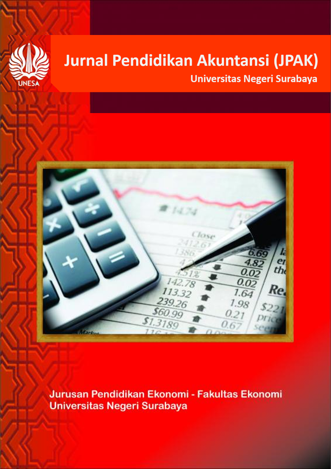Peran Religiusitas Sebagai Variabel Moderating Pembelajaran Perbankan Syariah, Literasi Keuangan Syariah, Product Knowledge Terhadap Keputusan Menabung Di Bank Syariah
DOI:
https://doi.org/10.26740/jpak.v9n1.p46-57Keywords:
Islamic banking learning; product knowledge; religiosity; sharia financial literacyAbstract
The increasing development of Islamic financial institutions in Indonesia is accompanied by an increase in users of Islamic banking financial services in each period due to customer interest in their policy system that is guided by the Al-Quran and hadith. Not only limited to these factors, but there are also various factors that can encourage a person's decision to entrust their funds to be deposited or managed by the Islamic bank. This research was conducted for the analysis of Islamic banking learning materials, Islamic financial literacy and product knowledge with religiosity as a moderating variable on the decision to save in Islamic banking. This type of research uses a quantitative approach and the sampling technique uses purposive sampling with a sample size of 140 students. To measure the accurate results of this study using a questionnaire and test instruments that have been in the form of googleform. The collected data were analyzed using structural equation modeling techniques. From the results of the analysis of this study, it was found that Islamic banking learning and product knowledge had a positive and significant effect, while Islamic financial literacy was able to influence the decision to save in Islamic banks, although it was less significant to the variable of decision to save in Islamic banks. Then religiosity cannot moderate the learning of Islamic banking and Islamic financial literacy on the decision to save in a syariah bank, while religiosity is able to strengthen product knowledge of the decision to save in a syariah bank.
Downloads
Downloads
Published
How to Cite
Issue
Section
License
Authors who publish with this journal agree to the following terms:
- Authors retain copyright and grant the journal right of first publication with the work simultaneously licensed under a Creative Commons Attribution License that allows others to share the work with an acknowledgement of the work's authorship and initial publication in this journal.
- Authors are able to enter into separate, additional contractual arrangements for the non-exclusive distribution of the journal's published version of the work (e.g., post it to an institutional repository or publish it in a book), with an acknowledgement of its initial publication in this journal.
- Authors are permitted and encouraged to post their work online (e.g., in institutional repositories or on their website) prior to and during the submission process, as it can lead to productive exchanges, as well as earlier and greater citation of published work (See The Effect of Open Access).

Jurnal Pendidikan Akuntansi (JPAK) is licensed under a Creative Commons Attribution-NonCommercial 4.0 International License.
 Abstract views: 4184
,
Abstract views: 4184
, PDF Downloads: 3578
PDF Downloads: 3578



